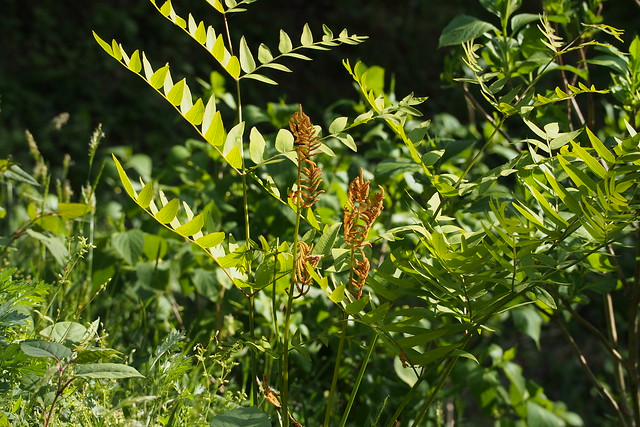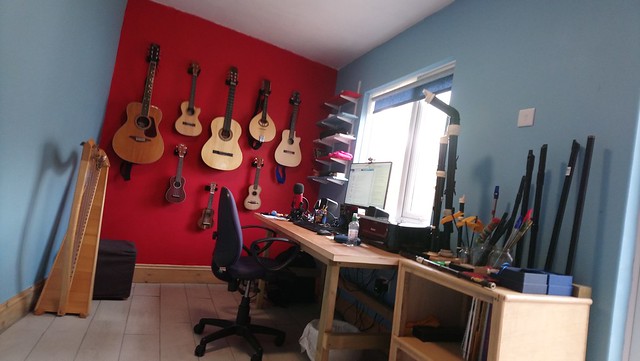The Japanese word 薔薇 (bara) means rose. If you asked random Japanese people to write these kanji (characters), many would struggle. However, they would be able to read them.
The word for rose is normally written with katakana – バラ, and the kanji version 薔薇 is not in everyday use, so it’s not surprising if people cannot write it. These kanji can also be pronounced shōbi or sōbi.
薔 (mizutade) on its own means Persicaria hydropiper, water pepper or marshpepper knotweed (see below). It is also known as 柳蓼 (yanagitade) in Japan, and can be used as an ingredient in various dishes such as sashimi, tempura, sushi and wasabi.
薇 (zenmai) means Osmunda japonica, a.k.a. Japanese/Asian royal fern (see below). Parts of the plant are used as a vegetable in parts of China and Japan.
Other words that Japanese people might struggle to write in kanji include 忍者 (ninja), 肘 (hiji = elbow), 挨拶 (aisatsu = greeting), 帽子 (bōshi = hat) 餅 (mochi = sticky rice cake), as you can see in this video:
This phenomena is common among Japanese (and Chinese) speakers who use computers, phones and other devices to type and input text rather than writing it by hand. You could call it character amnesia or kanji amnesia, or perhaps 漢字忘失 (kanji bōshitsu = “forgeting kanji”) in Japanese. I just made this up. Is there an official/standard term for it?
This doesn’t happen in languages with alphabetic or syllabic writing systems. Even if you do most of your writing on computers and other electronic gizmos, and your handwriting is poor, you don’t forget how to write any of the letters. You might forget or not know how to spell particular words, especially in languages like English with inconsistent and eccentic spelling systems, but you can at least have a go, and spell check and auto correct help.
People in Japan are apparently starting to realise that it is more important to be able to recognize kanji rather than learning to write them all by hand, at least according to this article on Tofugu. More kanji have been added to the everyday use list as they are easy to input on phones and other devices, even if they are hard to write by hand.
Perhaps the ability to write kanji by hand will become something that only calligraphers and other specialists do, while other people just input them on electronic gadgets.
When I was learning Chinese and Japanese, in the pre-interweb / smartphone age, I spent a lot of time writing the characters by hand, and found this helped me to remember them. I still write them down sometimes and enjoy doing so, but I mostly write them on my phone or computer, often using voice input.
By the way, here’s a rose-related song by Deai, a Russo-Japanese duo, called 百万本のバラ / Миллион алых роз (Million Scarlet Roses):








